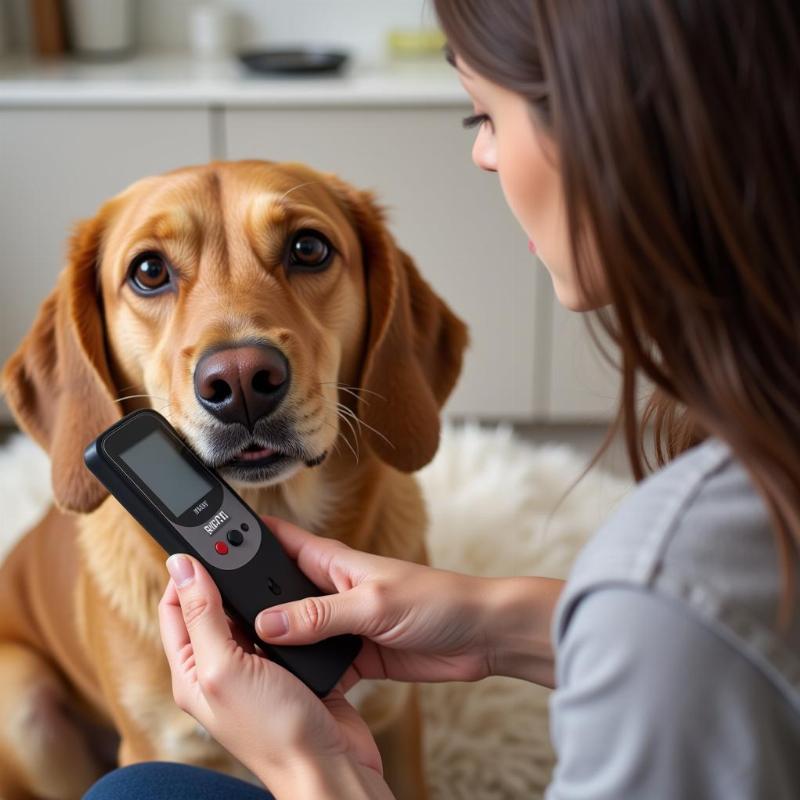Hot dogs are a quintessential American treat, but can our furry friends with diabetes indulge? The short answer is a resounding no. Feeding a diabetic dog a hot dog is dangerous and could have serious health consequences. While the occasional small piece of plain, cooked meat can be part of a balanced diabetic dog diet, processed foods like hot dogs are absolutely off-limits. They’re packed with sodium, nitrates, preservatives, and often high in sugar – all things that can wreak havoc on a dog managing diabetes. This article will delve into why hot dogs are inappropriate for diabetic dogs and what you can feed them instead.
Why Hot Dogs Are Harmful for Diabetic Dogs
Hot dogs present several dangers to diabetic dogs. Their high sugar content can lead to dangerous blood glucose spikes, making it difficult to manage the disease. The added sodium can contribute to dehydration and exacerbate other health issues, while nitrates and other preservatives have been linked to long-term health problems in dogs. The high fat content can also contribute to weight gain, further complicating diabetes management.
Blood Sugar Spikes and Diabetes Management
Maintaining stable blood sugar levels is crucial for managing diabetes in dogs. Hot dogs can cause rapid and unpredictable spikes in blood glucose, making it difficult to regulate insulin dosage and potentially leading to serious complications like diabetic ketoacidosis.  Checking blood sugar levels of a diabetic dog Even a small amount of hot dog can disrupt this delicate balance, putting your dog’s health at risk.
Checking blood sugar levels of a diabetic dog Even a small amount of hot dog can disrupt this delicate balance, putting your dog’s health at risk.
Healthy Alternatives to Hot Dogs for Diabetic Dogs
Instead of hot dogs, focus on feeding your diabetic dog a balanced diet specifically formulated for their needs. This typically involves high-fiber, low-fat foods that release glucose slowly.
Recommended Diabetic Dog Food
Many commercial dog foods are specifically designed for diabetic dogs. These foods are typically lower in carbohydrates and higher in fiber and protein, helping to regulate blood sugar levels. Look for options that list high-quality protein sources as the first ingredients and avoid foods with added sugars or artificial sweeteners. You can also consult with your veterinarian to determine the best food for your dog’s individual needs.
What Treats Can a Diabetic Dog Eat?
While hot dogs are off the table, there are still some treats you can give your diabetic dog. Opt for small pieces of plain, cooked meat (chicken, turkey, or lean beef), vegetables like green beans or carrots, or specially formulated diabetic dog treats. Always consult with your vet before introducing new treats to your diabetic dog’s diet. They can recommend suitable treats and help determine appropriate portion sizes.
Monitoring Your Diabetic Dog’s Diet
Careful monitoring of your diabetic dog’s diet is essential for maintaining their health. Regularly check their blood glucose levels, monitor their weight, and consult your veterinarian for guidance on adjusting their insulin dosage and dietary plan as needed.
FAQs
- Can diabetic dogs eat any kind of meat? No, focus on lean, cooked meats like chicken, turkey, or lean beef. Avoid processed meats like hot dogs or sausages.
- What vegetables are good for diabetic dogs? Green beans, carrots, and broccoli are good options.
- Are there specific dog treats for diabetic dogs? Yes, many brands offer treats specifically formulated for diabetic dogs, often using low-glycemic index ingredients. Consult your veterinarian for recommendations.
- How often should I check my diabetic dog’s blood sugar? Your vet will recommend a monitoring schedule, typically involving regular checks at home.
- What are the signs of low blood sugar in dogs? Signs can include weakness, lethargy, tremors, and seizures.
- Can diabetes in dogs be cured? While diabetes can’t be cured, it can be managed effectively with proper diet, insulin therapy, and regular veterinary care.
- What should I do if my diabetic dog accidentally eats a hot dog? Monitor them closely for signs of high blood sugar and contact your veterinarian immediately.
Related Articles:
Beautdogs.us is your trusted source for comprehensive dog care information, breed insights, and product guidance in the US. We offer expert advice for both new and experienced dog owners, ensuring your canine companion receives the best possible care. From dietary guidelines to breed-specific needs, Beautdogs.us is your one-stop shop for everything dog-related. Contact us today for personalized guidance! Email: [email protected], Phone: +1 501-555-7529.